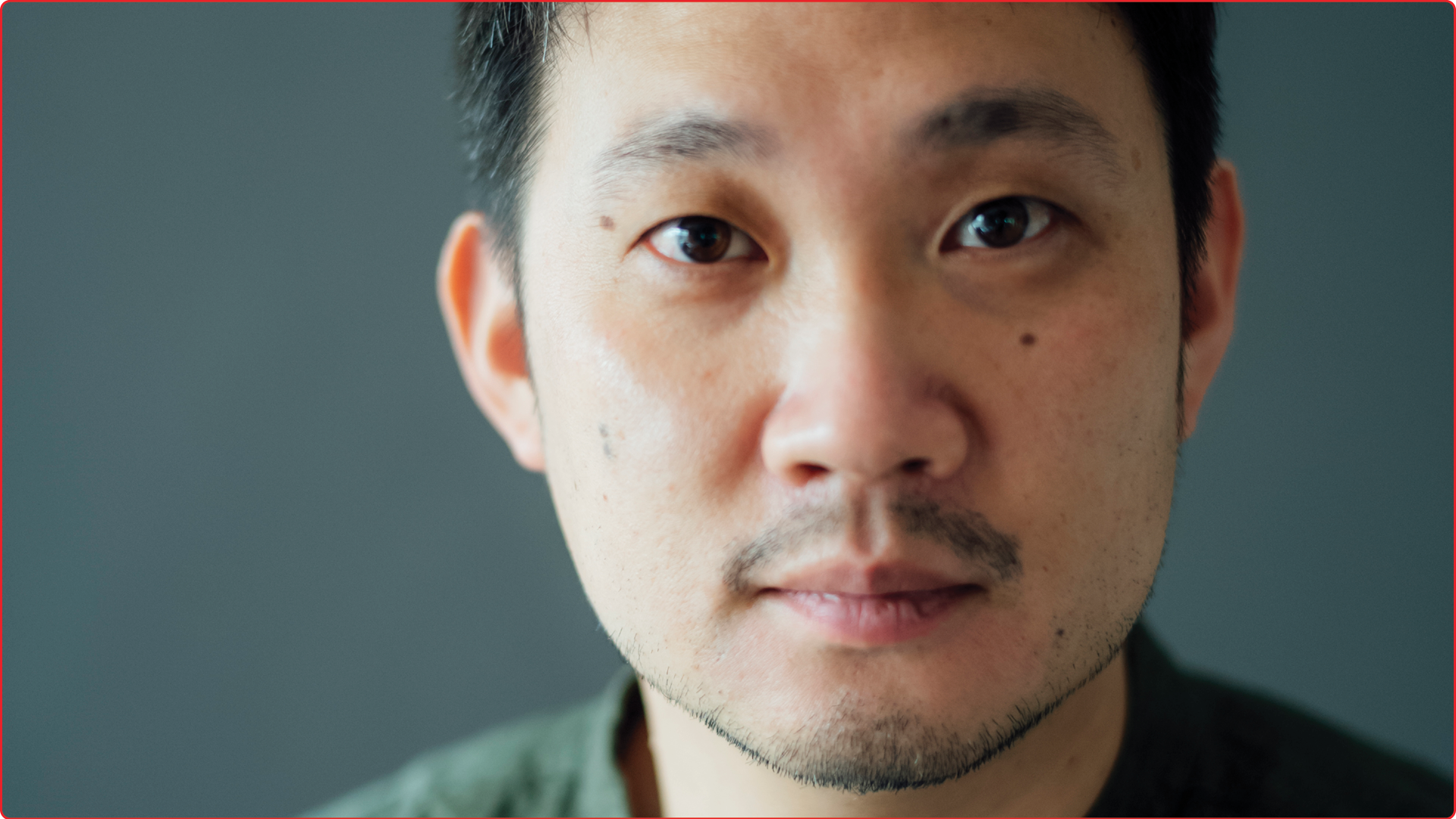Ryûsuke Hamaguchi
BY
Dora Leu
An interview with the eternally curious Japanese filmmaker.
Asako I & II (2018) is currently streaming on Metrograph At Home.
Ryûsuke Hamaguchi’s films are often about perspectives, about how one person, one place, or one story can be looked at from multiple angles. Take the isosceles love triangle at the center of his 2018 film Asako I & II, which features two seemingly identical characters (both played by Masahiro Higashide) with radically different personalities. The director takes this to another level with his newest release, Evil Does Not Exist, by reworking much of the material into Gift, a companion film of sorts with a score by Eiko Ishibashi that is intended to be performed as a live accompaniment. The plot remains unchanged; we see the same village community trying to resist the building of a glamping site and the same very rational Takumi (Hitoshi Omika) trying to impart knowledge on the smug, invading city-dwellers, but each film illuminates and recontextualizes the other, heightening tensions and dreamlike qualities. With its use of intertitles and the drama unfolding almost like a silent film, Gift seems an unusual endeavor for a director who places such particular importance on language and the spoken word, as shown in the stretching dialogues of earlier films like Intimacies (2015) and even Wheel of Fantasy and Fortune (2021). Evil Does Not Exist is, surprisingly, perhaps Hamaguchi’s darkest, bleakest film yet. But on closer inspection, this dual venture may not be entirely atypical for the Japanese director: both new films spotlight his incredible talent for capturing silent gestures, physical movement, and somewhat taciturn characters.
I sat down at Film Fest Gent with Hamaguchi—who laughed upon hearing the word “transcendental” used in reference to his cinema—to discuss both Gift and Evil Does Not Exist, the idea of humans as inherently evil and nature as inherently pure, as well as the traces of Chekhov that have carried over from his acclaimed 2021 feature Drive My Car through to his two most recent projects, which open in cinemas next week. Hamaguchi last spoke to the Journal in 2018 about Asako I & II, which is currently streaming on Metrograph At Home.—Dora Leu
DORA LEU: You’ve used the same footage to create two films, Gift and Evil Does Not Exist. How do you see them interacting with each other?
RYÛSUKE HAMAGUCHI: Well, first of all, there’s the form. With Evil Does Not Exist, the focus is on the story. There was a story and a script, and then it became a film. Whereas with Gift, first there was the music by Eiko Ishibashi. She offered me this piece, and proposed that I create images that would go along with the music.
The editing for Evil Does Not Exist was already finished when we started thinking about a concept for a live performance, which would later become Gift. One concept we had was that Gift could be perceived as a sort of dream in which we see Evil Does Not Exist. It’s not like what would usually happen in a dream, so, in that, in Gift you could see a different aspect of what you see in Evil Does Not Exist. Looking at things from a different angle, in a different way, is usually a chance to discover things that you didn’t know about yourself before.
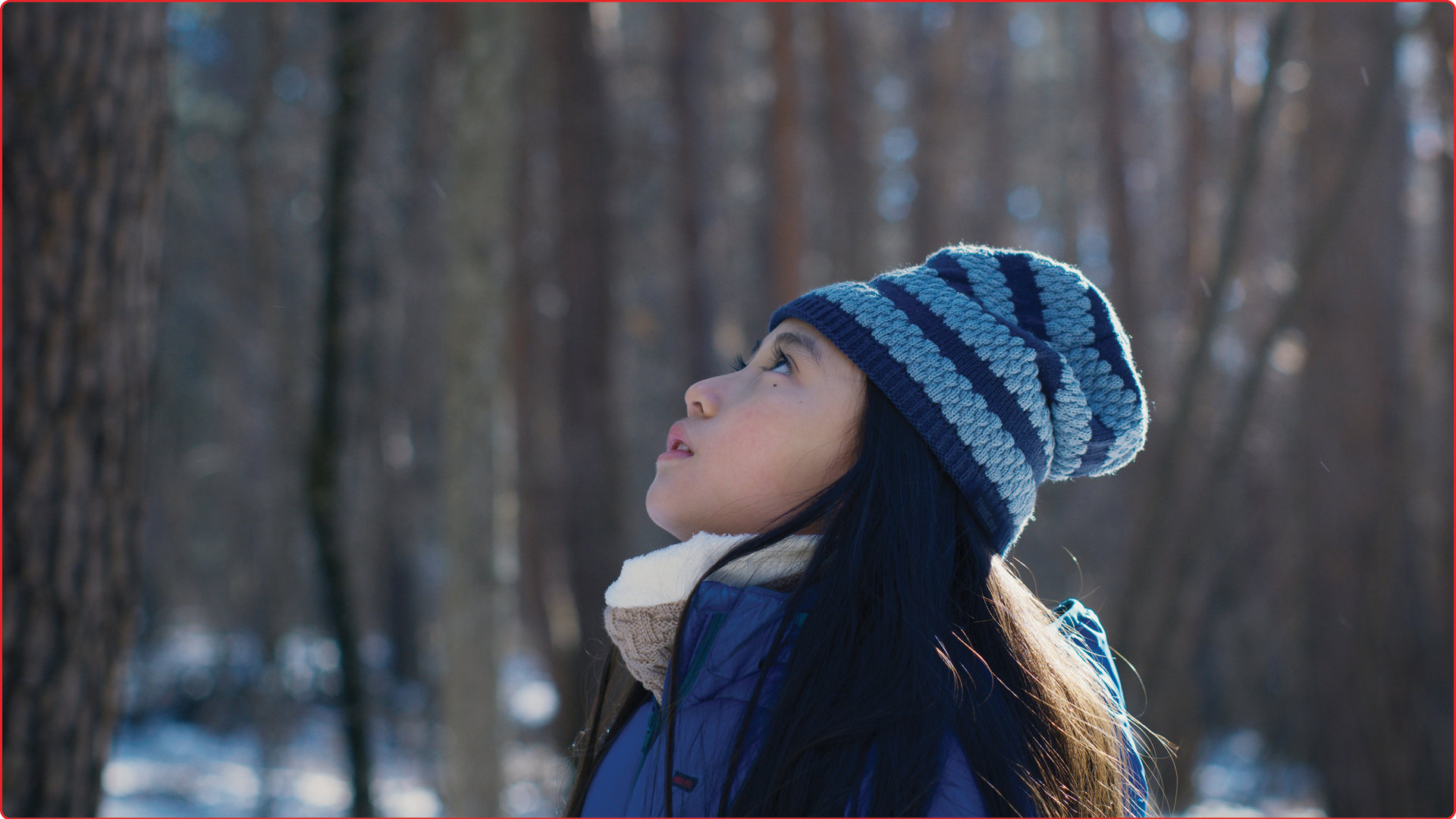
Evil Does Not Exist (2024)
DL: With your filmography, there’s always an experimental dimension, in terms of form and length. Like how Happy Hour (2015) is an episodic narrative, or how Drive My Car has a runtime of three hours. Was releasing this kind of pair of Evil Does Not Exist and Gift another way for you to experiment with form, or with different ideas of what a film can be?
RH: Well, you could call it an experiment or experimental, but not in the sense that I want to invent the frame or expand the borders of what filmmaking can be, anything like that. It’s more on a personal level. It’s about my way of directing a film, about improving my own skills. In that sense, it’s like a personal experiment. Doing something different from what I’ve been doing before. I think I’m always trying to do things I’ve never done before.
But it’s not like I want to do something that never really existed in film before. As a cinephile, there are a lot of films I admire, and I feel the art I make is not sufficient yet to be put on the same level as those. So, what I want to do is broaden my own scope of what I can do in film, and deepen and broaden my own filmmaking.
DL: What was the approach to storytelling in Gift, given there would be only a soundtrack for the film?
RH: One thing I thought about first was that we should have images of people having a dialogue, but without the sound. We thought about how to tell this story without relying on the narrative for explanation. As material we needed to capture images of nature, and also movement—the film is about movement. Those images would be strong enough to relay a narrative on their own.
Watching the film in Gent was the first time that I myself saw the result. I was happy with the choices we made. Because of the way it is set up, while she is playing the [live] music, Eiko Ishibashi was also watching the screen, just like the audience.
I was really impressed by the way Ishibashi was able to concentrate all the time on translating what was onscreen. She was able to convey even the slightest little movements or the smallest emotions.
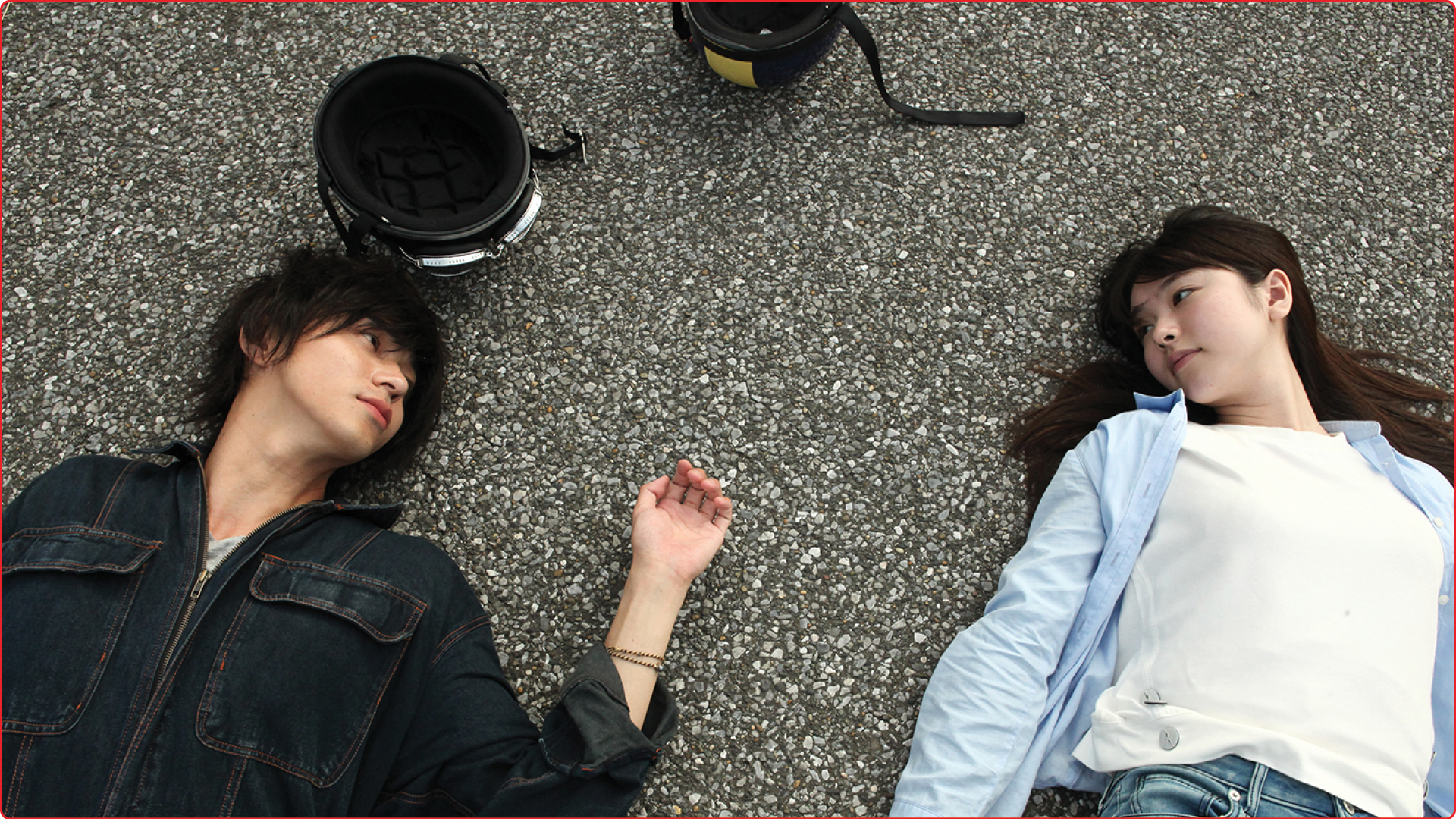
Asako I & II (2018)
DL: How essential do you see it for the audience to watch both films? Is there an order in which they should be watched?
RH: I thought about this myself, what would be better to watch first, but the conclusion is that I can’t control it. I leave it up to the audience. Whichever can be first. There are some things you will earn and some that you will lose, either way. I also think if people who have already watched Evil Does Not Exist go watch Gift, and then return to the film, they will gain a different experience re-watching it.
There’s also the problem that with Gift you need the live performance by Ishibashi, so people won’t have that many occasions to watch it. But there are things to discover by watching both of them. I watched Gift being performed that way for the first time myself, and it was a different experience from watching just the images. Ishibashi’s actual presence on stage gives a very different emotional experience.
You know, they often use the term “slow cinema” to describe my films, but watching Gift, I didn’t have the impression it was slow at all. I thought it was very fast. (Maybe this film will help the audience see my films differently.)
DL: I sensed a bit of magical realism in Evil Does Not Exist, or at least an idea of nature providing this dream space for things to interact with each other in a way different from reality. Were you interested in going down this path of magical realism, or were you going for a more… transcendental tone? Sorry, I don’t like that word [laughs], but I think you know what I am referring to.
RH: [Laughs] Well, it’s interesting that you interpreted it that way. But I wasn’t consciously trying to act on or to create magical realism. It’s not something that I’ve really studied or [had a lot of contact with] through literature, or whatever. The evil here is not exactly magical. What happens in each shot is reality. Some of the dreamlike elements are strengthened in Gift, but if you take every scene separately, it’s all real. Perhaps it’s in the way the shots are connected to each other that a magical realistic element sneaks in.
During editing, we weren’t sure which film would have which title. It could have gone either way. The title came to me while doing research, when I was looking at these sceneries and landscapes of nature. There was an impression of calmness. Just like how, in the beginning, the girl, Hana [Ryô Nishikawa], is looking at nature, and it feels like nothing can hurt her. True evil doesn’t exist in nature, or, rather, there are violent things that happen in nature, but it’s only when people enter the scene that actual evil emerges.
If you look at human beings, even if their intentions are good, be it in an economical or a moral sense, there’s always something inside them, a core of evil, that they really can’t choose. Even if they choose the good, evil somehow comes out. I wanted to ask this fundamental question about the difference between human action, where evil exists inherently, and nature, where it doesn’t.
With the title for Gift, there’s the meaning of a present, more particularly one coming from heaven. It’s something from Uncle Vanya, actually. I used a lot of the dialogue from that play in Drive My Car, but there were parts I couldn’t use, and this longer quote about a gift from heaven stuck with me. It’s said by Sonia to Astroff: “You always say that people do not create anything, but only destroy what heaven has given them. Why, oh, why, do you destroy yourself? Oh, don’t, I implore you not to! I entreat you!” Thinking about the story, I was reminded of these words and decided to use them. I thought it was a story about this kind of people, about people destroying things that were given to them. There’s also another side to it, in that “gift” means poison in German.
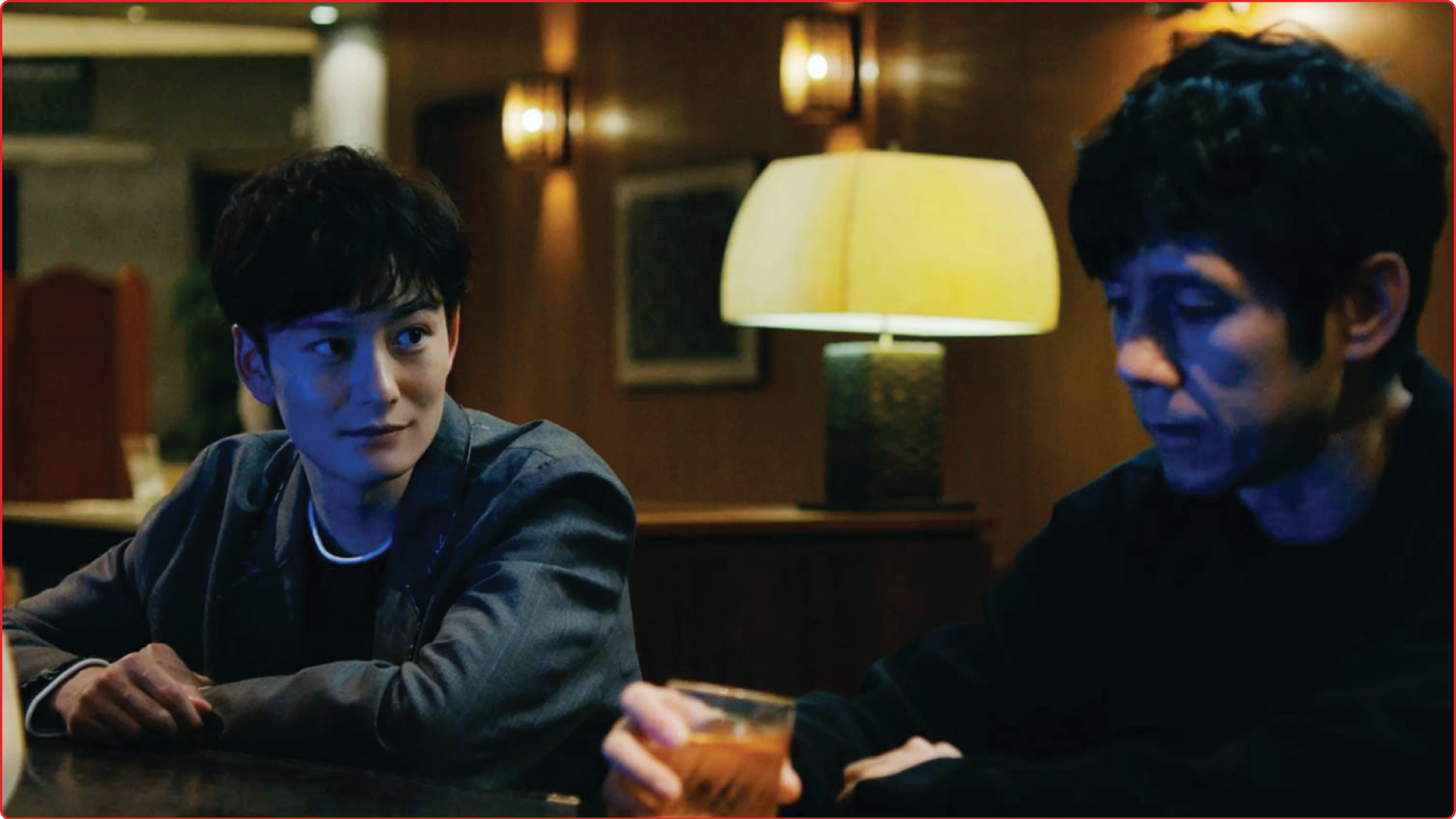
Drive My Car (2021)
DL: Does this destroying what has been given extend to a kind of desire to dominate nature?
RH: I don’t think most people start out by saying, “I want to control or conquer nature.” It starts from smaller desires. They think, “Oh, if I change this, it will become more convenient for me, or for us.” If you add up all these small desires or changes that you make, you end up with total destruction. And I think that’s basically how capitalism works.
DL: Evil Does Not Exist reminded me a bit of Shinsuke Ogawa’s radical documentaries about Narita, this idea of townspeople having to protest and resist. The arch in time also made me think about how the kind of protests that happened back when Ogawa was filming don’t, or can’t happen anymore in Japan. I was wondering how political you intended this film to be.
RH: I’m [honored] that you thought about Ogawa. But as for the question of how political I want to be with this film, I think it is about the same as with my previous films. What I mean is that I think there’s no such thing as a film which is absolutely not political. That aspect always enters the scene when you make a film.
When you talk about somebody’s life, there’s always something political at work. But I don’t mean that in the sense that I want to push certain political ideas through my films. It’s more about confronting people with things they don’t know, with things they’re unfamiliar with, and seeing how they deal with that.
DL: How did you approach Hitoshi Omika’s performance? Though he doesn’t have much acting experience, he makes for a very good physical actor—in a way similar to Hidetoshi Nishijima [who appears in Drive My Car]. There’s more to learn from their silences than from how they speak. They act with their whole bodies.
RH: I previously worked with Omika for Wheel of Fortune and Fantasy, where he was the production manager. For this project, he was actually my driver when we were researching. And then, at certain points, when I was testing shots or locations, I used him as a stand-in. In reality, his character is nothing like the person in the film. But when he was not speaking his expression had something quite mysterious. As I was discovering this, I decided to use him as the actor in the film.
There were parts where he had to talk, and that was difficult for him, not having acting experience. But he did his best to learn his lines and how to express them in front of the camera. It turned out better than I thought because, somehow, he managed to present himself in the film as a more likable character than I had originally imagined. He was a little cuter than I expected. And that really helped in the way he connected with the other characters in the film.
DL: A lot of people have been saying they felt a touch of Kiyoshi Kurosawa when they watched Evil Does Not Exist, because of its darker chill. This comparison made me wonder how you feel about your own position within Japanese cinema. Do you consider yourself an international filmmaker or do you just try to work organically?
RH: I don’t really know what my position is within the Japanese industry. Is it an international one? Well, film is always international. Images and sound can cross borders naturally. In a way, even if you’re not consciously trying to be an international director, it becomes that way because of the nature of the medium. But I do feel more and more that there’s an international aspect in my work. I am even interested in making films abroad, because the kind of things that I want to make are difficult to get made in Japan. It’s a challenge that I should, or will have to take, at some point.
DL: I remember just after Drive My Car you mentioned that you were also interested in going back to more documentary work. Was Evil Does Not Exist what came out of that desire, or do you plan to go further?
RH: Actually, I’ve been doing some other documentary work, and it is currently in the editing phase, but I don’t quite know how or when I will finish it. Gradually, though, in the way I do research and everything, I think my documentary work and my fiction work are becoming one and the same.
Dora Leu is a Romanian film critic and occasional filmmaker. She’s dedicated herself to the Japanese New Wave, essay films, and music videos.
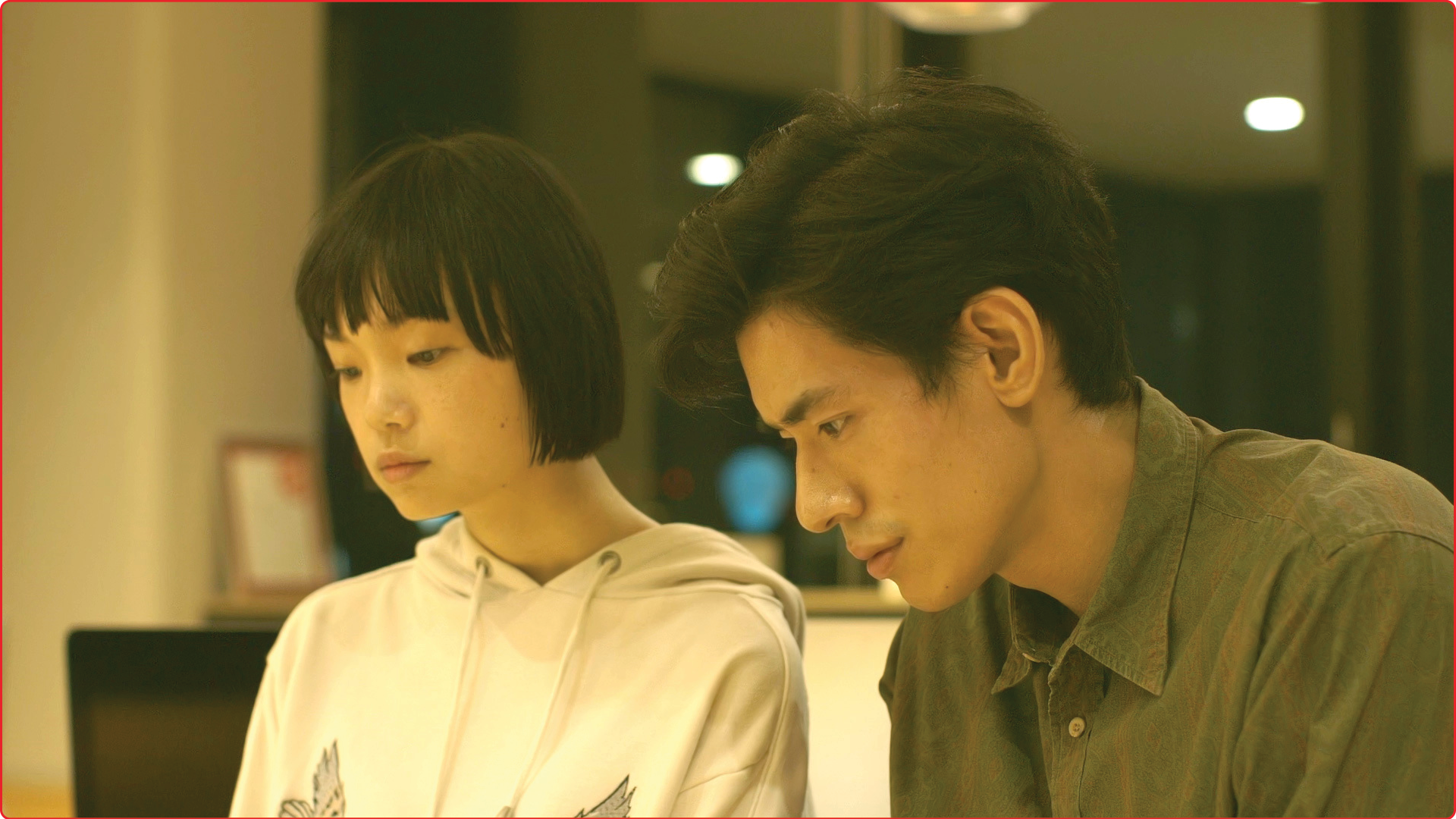
Wheel of Fantasy and Fortune (2021)
